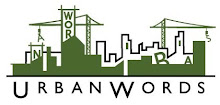I've been back from the internetless world of Hawthornden Castle almost two weeks now. It's been a bit of a whirlwind! Here are a couple of interesting things I've done/come across since I've got back:
A mass poetry writing project by Alan Summers, creating a 1000 verse renga, a really interesting Japanese form of communal poetry writing. You can find out more and get involved at:
http://area17.blogspot.com/Last week, I took part in Duncan Speakman’s
Subtlemob in Covent Garden (a lovely take on the idea of flashmobbing). Participants loaded one of 2 sound files before the event, positioned themselves in a specified area of Covent Garden with a partner and then listened and followed instructions. It was pouring with rain. My partner was suffering from a cold and I felt bad dragging her through dark wet streets! I liked it though. Liked rather than loved. People were asked to do things (put a hand on their partner’s shoulder, look in a window etc.) and the story was orchestrated so that people were doing actions that were being described to you through your headphones. Some of it worked – I loved it when people were looking up at the tops of buildings, and when we were asked to dance. But there was an uncomfortableness there too. I felt we were asked to hold positions for maybe too long – though I can see it was needed for the thing to work. I was struck by the pacing and how music/soundtracks can influence our experience of a place. I found some of the content bordering on cheesiness, but I loved how it made you stop and look at the city in a way you hardly ever do.
On Monday I went to
'Architecture in an Age of Anxiety', a talk by John Sorrell (about to step down as chair of CABE) at the Tate Modern. He was talking about the state of architecture and the threats posed to high quality places by the recession. He issued a ‘clarion call’ to architects, to stand up and be counted, to turn down compromised jobs, to fight for high quality projects. Unrealistic, maybe, but it was interesting to listen to thoughts about how architecture needs to change and how the recession offers opportunities for reassessment and questioning. He talked about ‘informing and inspiring’ people so they can make informed and inspired decisions about their environment. I asked him to talk more about this – how do we enable people to talk with understanding and passion about the places they live in, how do we empower people to get involved? His answer was not inspiring to me! He talked about working with local people as clients, taking them to inspiring places, educating them about architecture. Fine, but he said ‘we need to find a group of people who represent the whole of the community’ – is that possible? I’m not pretending I have an answer, but I’m not convinced that this addresses the issue that lots of people don’t feel informed, inspired or motivated to fight for better places; finding a group of 5 people with the time to get involved, even if that group is truly diverse, isn’t going to solve this wider issue.




